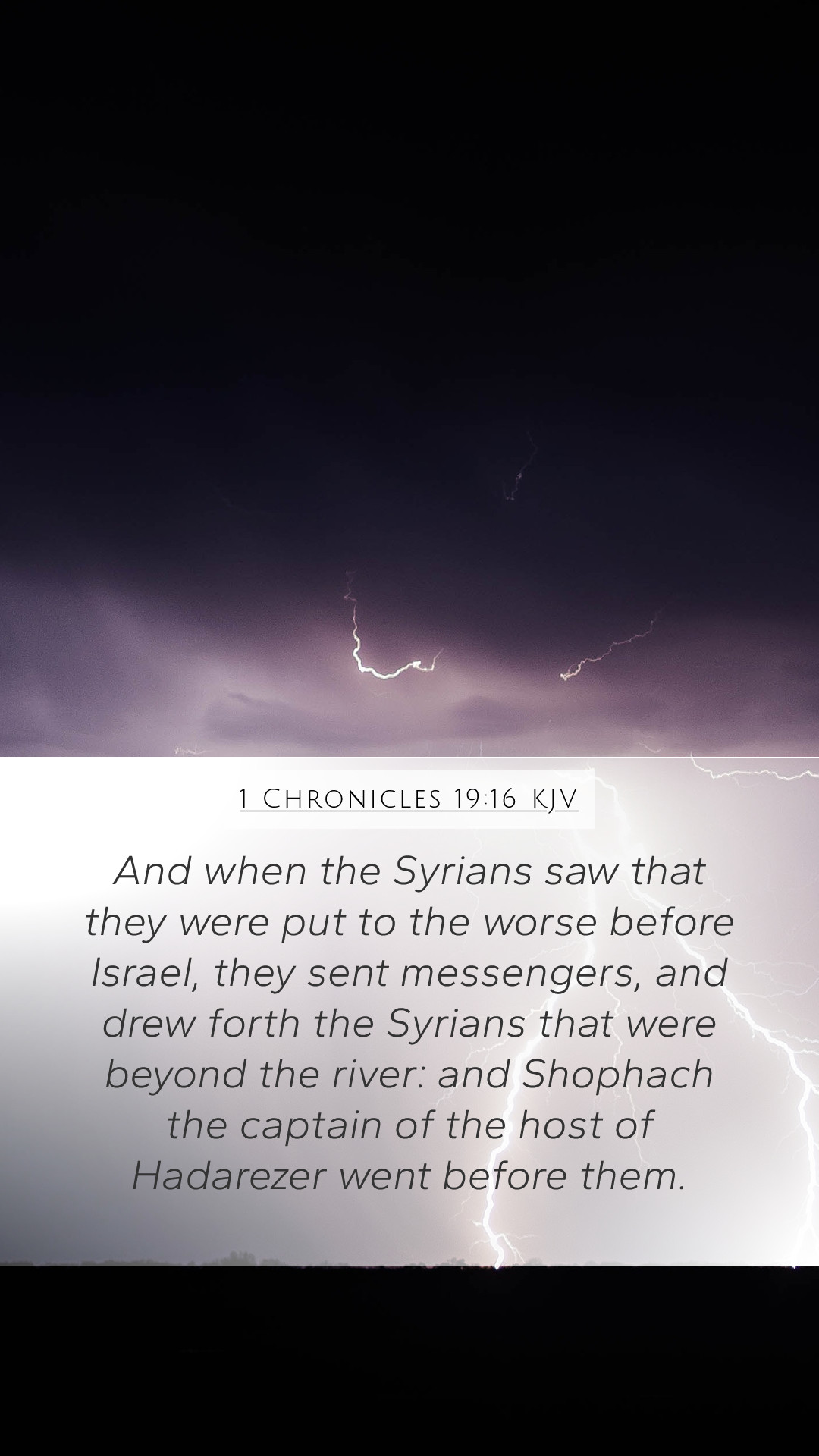Understanding 1 Chronicles 19:16
Verse: 1 Chronicles 19:16 - "And when the children of Ammon saw that they had made themselves odious to David, Hanun and the children of Ammon sent a thousand talents of silver to hire them chariots and horsemen out of Mesopotamia, and out of Syria Maachah, and out of Zobah."
Overview
This verse captures a critical moment in the narrative surrounding David's reign and the conflict with the Ammonites. It illustrates the political maneuvering and the shift in dynamics as the Ammonites seek to strengthen their position after realizing their animosity toward David had significant consequences.
Bible Verse Meanings
The meaning of this Bible verse can be understood through various commentaries that reflect on the actions and motivations of the Ammonites and the broader implications for the history of Israel.
Commentary Insights
-
Matthew Henry: Henry emphasizes the folly of the Ammonites in creating enmity with David. Their realization of having 'made themselves odious' highlights the dangerous consequences of their disrespect toward the Davidic authority. He suggests that their subsequent attempt to hire forces reflects a desperate bid to salvage their situation, demonstrating their lack of understanding of God's favor towards David.
-
Albert Barnes: Barnes notes the strategic miscalculations of the Ammonites. Their initial disrespect was met with David's righteous anger, prompting them to seek military aid. Barnes sees this as an illustration of how human pride can blind one to wise counsel and lead to grave errors in judgment. The hiring of mercenaries shows an attempt to turn to worldly solutions rather than seeking reconciliation.
-
Adam Clarke: Clarke examines the geographical context of the allies the Ammonites sought to hire, indicating the strength of a coalition against Israel. He reflects on the importance of knowing one’s enemies and cautions against underestimating the unity of the allied forces. Clarke implies a deeper spiritual lesson here: reliance on worldly forces rather than divine assistance often results in failure.
Historical Context
The backdrop for this verse is significant. The Ammonites had been emboldened by their offensive against David's envoys, which escalated the hostilities. The history between Israel and the Ammonites was fraught with animosity and warfare, stemming back to the Exodus and the settlement in Canaan. Understanding this context enhances our interpretation of the subsequent events in the narrative.
Theological Implications
Theologically, the verse illustrates the consequences of pride and rebellion against the Lord's anointed. The Ammonites' actions are a cautionary tale about the wrath that can be drawn from neglecting respect and honor toward God's chosen leaders. It also underscores the theme of divine sovereignty—God's plans will ultimately prevail despite human plots.
Practical Applications
For modern readers, the verse offers valuable lessons on leadership, conflict resolution, and the importance of humility. It encourages believers to seek peace and reconciliation rather than escalating conflicts. Additionally, it serves as a reminder to rely on God for deliverance rather than resorting to worldly alliances.
Cross References
- 2 Samuel 10:1-5 - The initial conflict with the Ammonites.
- 1 Chronicles 20:1 - The continued conflict and wars during David's reign.
- Psalm 20:7 - Trusting in the name of the Lord versus chariots and horses.
Conclusion
In conclusion, 1 Chronicles 19:16 provides rich material for Bible verse commentary and analysis. By understanding the context, actions, and implications, believers can deepen their Bible study insights and apply these lessons to contemporary life.
Further Study Suggestions
- Join Bible study groups for collaborative learning on similar themes.
- Explore online Bible study resources for deeper insights on the conflicts in Scripture.
- Utilize Bible study tools for historical and cultural context in your interpretations.
This exploration illustrates the understanding of Scripture through careful study and examination, ensuring that readers can apply these insights to their daily lives.


